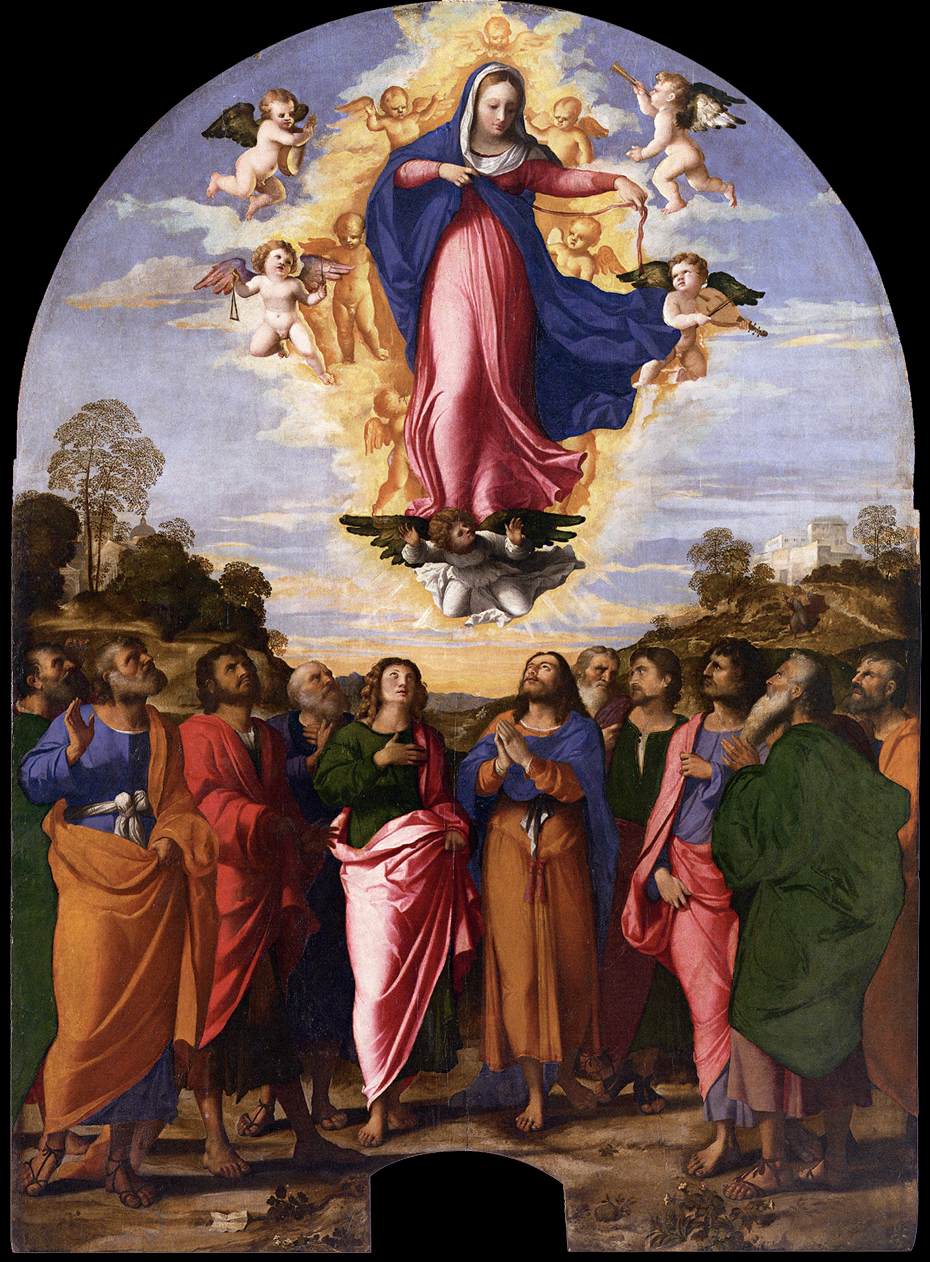Spiritual Sunday
This past Thursday various Christian denominations observed the Feast of the Assumption, which is the celebration of the Virgin Mary being assumed into heaven. (Jesus ascended, Mary was assumed.) This is one of those moments when the veil between the profane and the sacred is lifted and humans have a direct experience of the divine. In the medieval romance Sir Gawain and the Green Knight, one of the five fives on Gawain’s shield, symbolized by the five pointed star, is the five moments when Mary had direct contact with godhead. The other four are Gabriel’s announcement that she will bear the Christ child, the birth of Jesus, and witnessing the Resurrection and Jesus’s ascension.
This 17th century poem by the Anglican Richard Crawshaw celebrates “the glorious assumption of our blessed lady.” At times it reads as a love poem and I find in it echoes of the erotic Song of Songs in the Bible and of Edmund Spenser’s ecstatic wedding poem “Epithalamion.” The “heavenly dove” is, of course, the Holy Spirit, who is calling Mary home. The male and the female merge in this moment of bliss, which would have gone counter to the very masculinized Christianity that the Puritans were preaching at the time, as would Crashaw’s celebration of Mary.
On the Glorious Assumption of Our Blessed Lady
By Richard Crashaw
Hark! she is called, the parting hour is come.
Take thy farewell, poor world! heav’n must go home.
A piece of heav’nly earth;
Purer and brighter
Than the chaste stars, whose choice lamps come to light her
While through the crystal orbs, clearer than they,
She climbs; and makes a far more milky way.
She’s called. Hark, how the dear immortal dove
Sighs to his silver mate, “Rise up, my love!
Rise up, my fair, my spotless one!
The winter’s past, the rain is gone.
The spring is come, the flowers appear
No sweets, but thou, are wanting here.
Come away, my love!
Come away, my dove!
Cast off delay.
The court of heav’n is come
To wait upon thee home;
Come, come away!
“The flowers appear.
Or quickly would, wert thou once here.
The spring is come, or if it stay,
’Tis to keep time with thy delay.
The rain is gone, except so much as we
Detain in needful tears to weep the want of thee.
The winter’s past.
Or if he make less haste,
His answer is, why she does so.
If summer comes not, how can winter go.
Come away, come away.
The shrill winds chide, the waters weep thy stay;
The fountains murmur; and each loftiest tree
Bows low’st his heavy top, to look for thee.
Come away, my love!
Come away, my dove!
Cast off delay.
The court of heav’n is come
To wait upon thee home;
Come, come away!”
She’s call’d again. And will she go?
When heav’n bids come, who can say no?
Heav’n calls her, and she must away.
Heav’n will not, and she cannot stay.
Go then; go Glorious.
On the golden wings
Of the bright youth of heav’n, that sings
Under so sweet a burden. Go,
Since thy dread son will have it so.
And while thou goest, our song and we
Will, as we may, reach after thee.
Hail, holy Queen of humble hearts!
We in thy praise will have our parts.
Thy precious name shall be
Thy self to us; and we
With holy care will keep it by us.
We to the last
Will hold it fast
And no Assumption shall deny us.
All the sweetest showers
Of our fairest flowers
Will we strow upon it.
Though our sweets cannot make
It sweeter, they can take
Themselves new sweetness from it.
Maria, men and angels sing,
Maria, mother of our King.
Live, rosy princess, live. And may the bright
Crown of a most incomparable light
Embrace thy radiant brows. O may the best
Of everlasting joys bathe thy white breast.
Live, our chaste love, the holy mirth
Of heav’n; the humble pride of earth.
Live, crown of women; Queen of men.
Live mistress of our song. And when
Our weak desires have done their best,
Sweet angels come, and sing the rest.


